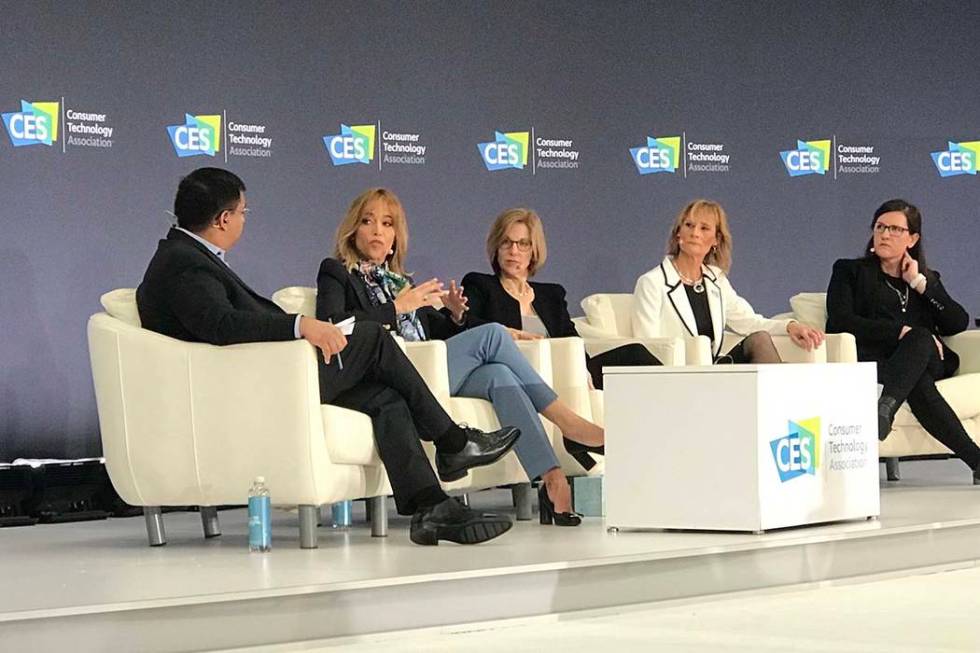FTC commissioner: Facebook’s new privacy checkup not enough

Apple made its first appearance at CES in 28 years Tuesday in a discussion about privacy.
Jane Horvath, the company’s senior director of global privacy, was tasked with answering questions about industry use of personal data during a panel called “Chief Privacy Officer Round Table: What Do Consumers Want?”
Other panelists included Federal Trade Commissioner Rebecca Slaughter (whose organization recently fined Facebook $5 billion); Erin Egan, vice president of public policy and chief privacy officer at Facebook; and Susan Shook, global privacy officer at Proctor &Gamble.
For the most part, there was little clashing during the panel between the two tech giants, as Horvath made it clear she would not “opine” on competitors.
Nevertheless, Slaughter said not enough was being done to protect consumer data.
“Just that fact that almost every day, when we read the newspaper, we see different concerning stories about privacy or security breaches, it would be impossible to conclude that enough is being done,” she said.
Data use
The Facebook and Apple executives reiterated their companies’ commitments to letting consumers drive how their data is being used.
However, Slaughter said the burden to protect privacy shouldn’t fall solely on users, and that Facebook’s new privacy tool — announced a day before the panel — was not enough.
“I’m concerned with a universe where the entirety of the burden to protect one’s data lies with (the) consumer,” she said. “Because I think that today, even if consumers can walk through a privacy checkup or think about all these things, the amount of information that you have to process to figure out what is happening with your data is untenable for most people.”
Facebook’s checkup tool, launched in 2014, now gives users eight categories divided into four adjustable sections instead of three: who can see what you share, how to keep your account secure, how people can find you on Facebook and your data settings on Facebook. Privacy Checkup lets people quickly manage their data-sharing settings within the platform, but to control additional privacy settings such as turning off the network’s face-recognition feature, people must visit the Settings tab.
When asked if Facebook uses too much data, Egan highlighted the company’s dedication to “data minimization.”
“Data minimization is a core for privacy concept, and it’s something that we embody in everything we do, so we collect the data we need to serve people and to serve advertising,” she said. “We adhere to the concept of data minimization. We collect what we need to serve people. We give people control and choice over that data, and we’re clear with people about it, and we work to deidentify.”
Syncing question
Judging from the line of reporters to ask questions, much was not answered during the hourlong panel.
At one point, Horvath said all of Apple’s devices could be synced together so they are “smart,” but Apple wouldn’t know what users are doing.
A reporter later asked if Apple devices could be synced together, if a virus downloaded from one device could then reach the others.
Horvath said she didn’t have an answer for that, but she would bring it up to Apple. She did say she was sure it had been thought about.
Contact Alex Chhith at achhith@reviewjournal.com or 702-383-0290.